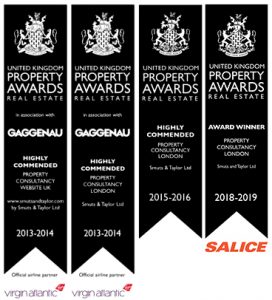Research by eMoov has highlighted that even if the market continues stalling an increase 0.37% a month, the average UK house would still hit £347,757 over the next decade, an increase of 56%.
Research Findings
- The average house price has risen on average by just 0.37% a month since the decision to leave the EU, compared to 0.67% a month on average between June 2015 and 2016.
- London has seen a real slowdown in price growth since Brexit and so although the capital would still be one of the most expensive cities in the UK
- London homeowners have seen an average monthly increase of just 0.18% since June last year, but this is still enough to push prices to a huge £597,544 over the next ten years
- Nottingham is top of the table in terms of monthly prices growth since Brexit, up 0.80% a month on average meaning the average house price would increase 160% from the current £133,215 to £346,592 by 2027.
- Glasgow has increased by a notable 0.70% a month since June of last year, the second highest across the UK. If this subdued monthly growth continues the Scottish city will see prices hit £285,487 by 2027, a jump of 131%.
- Oxford ties with fourth place Cardiff with an average monthly increase of 0.64% in the last year. As a result, the city would see its already expensive current cost of property (£413,240) jump £115% to an eye watering £888,542 by 2027. Cardiff would see a new average house price of £427,799 by 2027.
- Edinburgh, Scotland’s capital and its second entry in the top five has seen prices increase by a monthly average of 0.63% since June 2016. The same slower rate of growth over the next decade would still see prices exceed half a million (£506,627), an increase of 112%.
Founder and CEO of eMoov, Russell Quirk, commented: “With latest industry figures indicating an end to the post-Brexit market slowdown that has seemingly plagued the market over the last 18 months, many UK homeowners will be breathing a sigh of relief, despite having still enjoyed a notable annual increase in their property’s value.
Although these recent slower rates of price growth are unlikely to persist going forward, and we are by no means predicting they will, this research demonstrates that the outlook would still be rather positive and far from the apocalyptic prophecy’s many have talked the market down with since the Brexit vote.”

